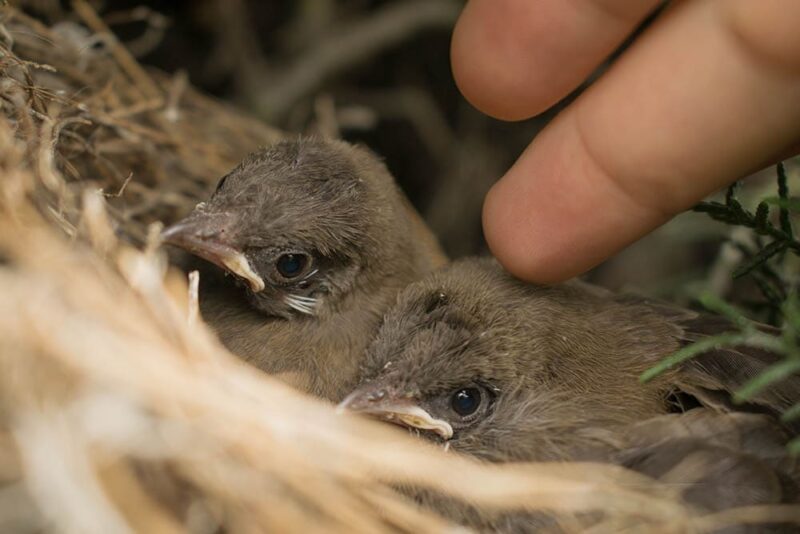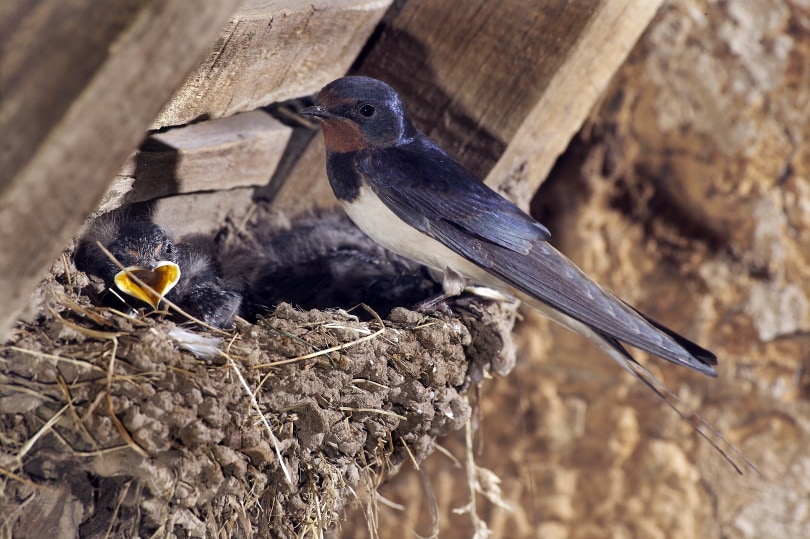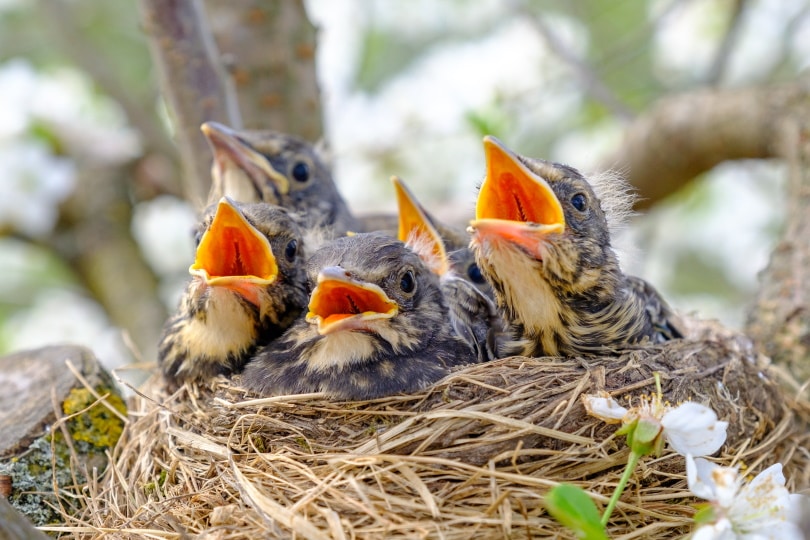Will Touching a Baby Bird Make its Mother Abandon It?
Last Updated on

Imagine you are taking a walk in the forest or simply enjoying a sunny afternoon in your yard. Suddenly, you come across a tiny bird that has fallen from its nest. You want to put it back in its place, but then you remember what your parents told you when you were a child: “If you touch a baby bird, its mother will probably abandon it and it will die.” But is it really true?
Fortunately, this is a myth. In fact, this popular belief not only minimizes the parental instinct of birds1, but it also goes against a fundamental aspect of their biology. The concept is not to give up so easily on what has “cost” them energy (in terms of attention and provision of food) to nurture and protect their young. Moreover, this myth assumes that birds have an excellent sense of smell, which is not entirely wrong given recent research2 on the subject. But in any case, this false belief also has its upsides, as it prevents people from disturbing wildlife.
Because the truth is, birds don’t abandon their young in response to human touch, but they can abandon their offspring and nest in response to disturbance3.

Birds Bond With Their Young and Do Not Abandon Them Quickly
Like most wild animals, birds have an instinct to protect their offspring. In fact, animals can resort to extraordinary means to ensure the survival of their young. For example, mother ducks may fake a broken wing to distract predators, and a cheetah will move her babies every four days to avoid the buildup of smell that predators can track. Another astonishing and very touching example is the case of elephants, who “mourn” their dead and go so far as to adopt an orphan baby elephant.
Of course, there are cases when an animal can abandon its young, but this almost only happens when the instinct for self-preservation takes over the maternal instinct.
Thus, a mother bird who has spent time nurturing and protecting her babies is not going to abandon them at the slightest danger, because that would go against her instincts.

Birds Can Smell…to a Point
It is wrong to claim that birds have no sense of smell. Indeed, recent studies show that several species of birds have a complex and developed olfactory system, which allows them, among other things, to orient themselves in flight, locate their nest in the trees, feed, and even choose a mating partner.
However, there is no evidence that birds can detect or even be bothered by human scent. In fact, baby animals that have been handled by biologists in controlled research are usually reunited with their mothers afterward, and the mothers don’t seem bothered by the smell of biologists on their young. However, scientists must work quickly to minimize disturbance, which seems to be the real problem in cases of animal parents abandoning their young.

Should You Handle a Baby Bird?
The belief that mother birds will abandon their young if a human touches them is unfounded, but it does have benefits. In effect, it prevents people from disturbing the wildlife instead of letting nature take its course.
But what if you find a baby bird outside its nest? Should you put it back in its nest, knowing that the mother bird probably won’t abandon it because of your scent? Not so fast! The truth is that although baby birds are sometimes seen outside their nests, that’s not necessarily a bad thing, and it doesn’t always require human assistance.
Baby birds learning to fly sometimes fall out of their nests from jumping around and also because they have not yet mastered their wings. However, a small bird that hops on the ground has not necessarily fallen from its nest: if it has feathers and moves relatively easily on the ground, it is probably just practicing its flight.
However, if you find a baby bird with only down, appears blind, and has trouble moving on its own, it is probably a fledgling that has fallen from the nest. In this case, you can pick it up very gently and put it back where it belongs.

Conclusion
The rule of thumb when finding baby animals is to leave them alone. Often, a baby bird found on the ground does not need your help, as it is quite possible that its parents are not far away and are waiting for you to leave. However, in rare cases, returning a fledgling to its nest may be the right thing to do, especially if it is still too small to fly on its own. So, if the nest is accessible, you can carefully put the baby bird there without fear that its mother will abandon it because of your smell.
Featured Image Credit: Malik Haris 10, Shutterstock
About the Author Genevieve Dugal
Genevieve is a biologist and science writer and has a deep love for capuchin monkeys, pumas, and kangaroos, which has taken her around the world to work and volunteer for several wildlife rehabilitation centers. A Canadian expat, Genevieve now lives in Argentina, where she wakes up every morning to horses and cows saying hello from the vast plain next to her home office window. Having the privilege of sharing her knowledge and passion for animals of all kinds is what makes her fulfilled and happy.
Related Articles:
10 Types of Hummingbirds in Arkansas (With Pictures)
8 Types of Hummingbirds in Nebraska (With Pictures)
5 Types of Hummingbirds in Idaho (With Pictures)
3 Types of Hummingbirds in Mississippi (With Pictures)
8 Types of Hummingbirds in Kansas (With Pictures)
5 Types of Hummingbirds in West Virginia (With Pictures)
5 Types of Hummingbirds in Ohio (With Pictures)
Where Do Nuthatches Nest? Nuthatch Nesting Habits Explained
